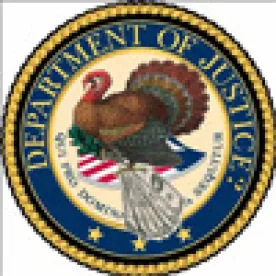On Monday, the U.S. Department of Justice and the U.S. Department of the Treasury’s Office of Foreign Assets Control (OFAC) announced actions against four Chinese nationals and a China-based network of companies alleged to have provided North Korea with access to the U.S. financial system. The announcements followed months of steadily increasing pressure on North Korea and its economic partner, China.
Although the charges were announced yesterday, a New Jersey District Magistrate Judge signed a criminal complaint in August 2016 charging the Chinese nationals and China-based company with conspiracy to evade U.S. sanctions, violations of sanctions regulations, and conspiracy to launder money instruments. The Justice Department’s Asset Forfeiture and Money Laundering Section also filed a civil forfeiture complaint to seize funds contained in 25 bank accounts held for the alleged front company network. OFAC concurrently designated Dandong Hongxiang Industrial Development Company Ltd (DHID), and the Chinese individuals for illicitly providing a designated North Korean bank access to the U.S. financial system.

Identified North Korean Front Companies
OFAC did not designate the front companies alleged to comprise the sanctions evasion network. The civil complaint, however, identifies the following entities as owned or controlled by DHID:
-
Blue Sea Business Co., Ltd.
-
Carbuncle Business Co., Ltd.
-
Fanwell, Ltd.
-
Fully Max Trading, Ltd.
-
Success Target Group, Ltd.
-
Beauty Chance (HK), Ltd.
-
Best Famous Trading, Ltd.
-
Deep Wealth Ltd.
-
Flying Horse (HK), Ltd.
-
Go Tech Investment, Ltd.
-
Good Field Trading, Ltd.
-
Hong Kong Golden Ball Development, Ltd.
-
Hong Kong Hugo Development, Ltd.
-
Hong Kong Win Dragon Development, Ltd.
-
Hong Xiang Industrial Development (H.K.) Ltd.
-
Jiajia Holdings, Ltd.
-
MK Vista Shipping & Business Co., Ltd.
-
Nation Good (H.K.), Ltd.
-
Nice Field International, Ltd.
-
Sheen Fair Trading, Ltd.
-
Unique One Development, Ltd.
-
Win Trade Worldwide Ltd.
Steadily Increasing Pressure
In January 2015, President Obama issued Executive Order 13687, which broadly authorizes OFAC to designate individuals and entities beyond the previous relatively narrow categories of trade or actors. OFAC used this authority in November 2015 to designate four individuals and an Egyptian-based entity for their alleged roles in North Korea’s illicit weapons and finance networks.
President Obama significantly increased sanctions in March 2016 through Executive Order 13722, which implements the North Korea Sanctions and Policy Enhancement Act of 2016 (H.R. 757). Concurrently with the issuance of the Executive Order, OFAC announced the designations of 17 North Korean government officials and organizations, 15 entities, two individuals, and identified 40 blocked vessels under various sanctions authorities.
In June of this year, the U.S. Department of the Treasury announced a finding that North Korea is a jurisdiction of “primary money laundering concern” pursuant to its Section 311 authority, codified at 31 U.S.C. 5318A. Treasury’s Financial Crimes Enforcement Network (FinCEN) also released a notice of proposed rulemaking, which would impose the strongest available “special measure” to address the money laundering risks from North Korea. The notice of finding for this action clearly sets forth the U.S. government’s position that North Korea accesses the international financial system through its network of China-based front companies.
We will continue to monitor developments in the criminal, civil and regulatory enforcement of U.S. economic sanctions and money laundering laws.



 />i
/>i

